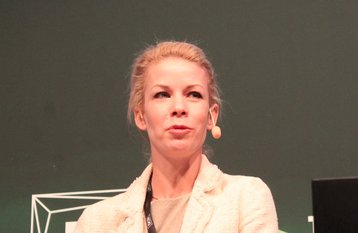In these strange and scary times, it is important to keep focused on the threats ahead, even as we struggle with the threats of today.
In her opening remarks at DCD>Energy Smart, Stockholm’s mayor Anna König Jerlmyr told attendees about how we must work together to combat climate change, and how data centers are a crucial part of the fight.
The struggle(s) of our time
“With coronavirus all over the headlines, reports of lower carbon emissions, and the need to restart the economy, one may conclude that it's possible - even necessary - to relax our climate ambition,” Jerlmyr said at the now-virtual conference. “But nothing could be more wrong.”
“The current crisis will teach us many lessons. One certainly is that we never again want to rewrite the rules of life in what is close to panic mode. Precisely for that reason, there is no room to delay action to slow global warming.”
She added: “The corona crisis has made it absolutely clear how important data centers are. Without the dedication by all of you in this sector, working from home, virtual meetings and conferences would not be possible on the scale that we see right now. And what is already a difficult economic situation would have been much worse.”
Just as data centers are helping to ease the pain of the ongoing Covid-19 pandemic, they offer an opportunity to help reduce the impact of climate change. “By working together with the energy sector, the two sectors can lead the transformation towards a sustainable future,” Jerlmyr said.
“That is the reason why Stockholm and Stockholm Data Parks are co-hosting Energy Smart this year. Just look at the agenda of the conference. It is full of pioneering ideas and actions from how the sectors and the economy at large can reduce their carbon footprint even becoming net climate positive.”
Last year, Stockholm saw three new data center operators open data centers around the city - Advania Data Centers, Interxion, and IP-Only - with the facilities’ waste heat recovered. “All in all, these three data centers have the potential to heat 35,000 modern residential apartments,” Jerlmyr said.
The city is funding research into applying energy-efficient and environmental technology, Jerlmyr said, including with a Bio-Energy Carbon Capture and Storage (BECCS) project, a world first. “With BECCS, we can enable negative emissions for us and the interested parties where we have effectively extracted carbon from the atmosphere.”
But even with these efforts, and with the impact of climate change on course to be far greater than the current pandemic, Jerlmyr noted that the Covid-19 crisis will have a profound impact: “I believe that we must always be prepared to seek new ways of working. And there's no doubt in my mind that Corona will make us rethink how we meet and travel in the future.
“Nevertheless, I am equally convinced that physical meetings and conferences will remain essential to exchanging ideas and cooperating to achieve what will remain the challenge of our time: decarbonizing the economy.”




